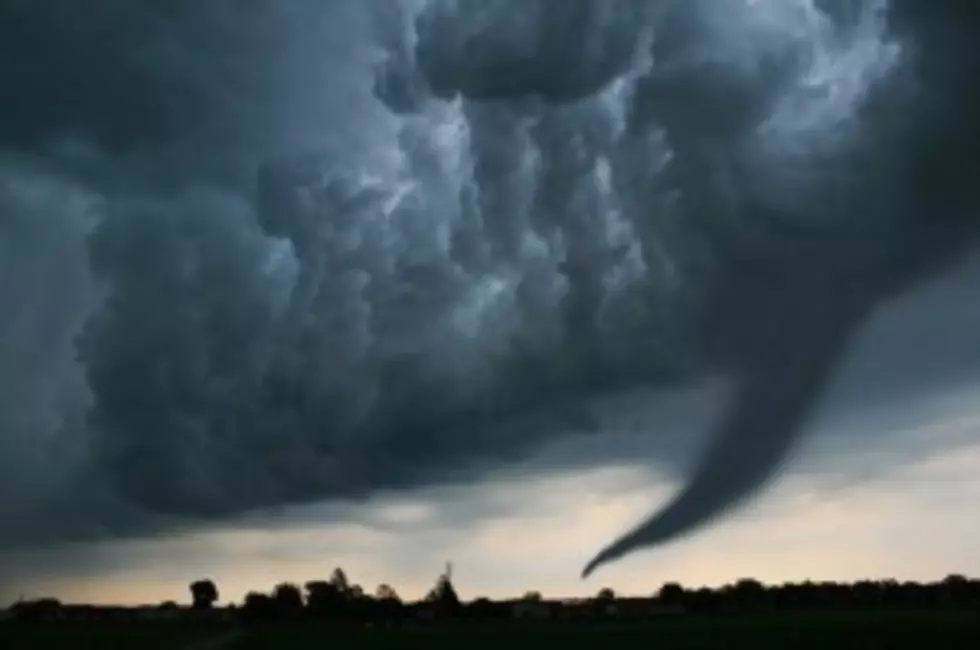
What to do When a Tornado Warning is Issued
Here are some tornado safety tips from the National Weather Service Storm Prediction Center:
1. If your house has a basement: Avoid windows. Get in the basement and under some kind of sturdy protection, such as a heavy table or work bench, or cover yourself with a mattressor sleeping bag. The weather service recommends knowing where very heavy objects, such as pianos, refrigerators or waterbeds, rest on the floor above and to avoid seeking sheltering under them. They may fall through a weakened floor and crush you. Head protection, such as a helmet, can offer some protection, the weather service notes.
2. If your house has no basement, or you live in a dorm or apartment: Avoid windows. Go to the lowest floor, a small center room like a bathroom or closet, under a stairwell, or in an interior hallway with now windows. Crouch as low as possible to the floor, facing down and cover your head with your hands. The weather service says that a bath tub may offer partial protection, but that even in an interior room, you should cover yourself to protect against falling debris.
3. If you are in an office building, hospital, nursing home or skyscraper: Find an enclosed, windowless area in the center of the building on the lowest floor possible. Then, crouch down and cover your head. The weather service recommends interior stairwells, which, if not crowded, also allow you to get to a lower level quickly. The weather service also advises that people stay off the elevators because you could be trapped in them if the power is lost.
4: If you are in a mobile home: Get out! Even if your home is tied down, it is not as safe as an underground shelter or permanent, sturdy building. The National Weather service says most tornadoes can destroy even tied-down mobile homes; and it is best not to play the low odds that yours will make it. This mobile-home safety video from the State of Missouri may be useful in developing a tornado evacuation plan.
5: If you are at school: Follow the drill! Go to the interior hall or room in an orderly way as you are told. Crouch low, head down and protect the back of your head with your arms. The weather service reminds people to stay away from windows and large open rooms like gyms and auditoriums.
6: If you are in a car or truck: Vehicles are extremely risky in a tornado. There is no safe option when caught in a tornado in a car, according to the National Weather service, just slightly less-dangerous ones. If the tornado is visible, far away, and the traffic is light, weather experts say you may be able to drive out of its path by moving at right angles to the tornado. Seek shelter in a sturdy building, or underground if possible. If you are caught by extreme winds or flying debris, park the car as quickly and safely as possible. Stay in the car with the seat belt on. Put your head down below the windows; cover your head with your hands and a blanket, coat or other cushion if possible. However, if you can safely get noticeably lower than the level of the roadway, weather experts advise you to leave your car and lie in that area, covering your head with your hands. Weather experts strongly advise against seeking shelter under bridges, which can create deadly traffic hazards while offering little protection against flying debris.
7: If you are in the open outdoors: If possible, seek shelter in a sturdy building. If not, weather experts say to lie flat and face-down on low ground, protecting the back of your head with your arms. Get as far away from trees and cars as you can; they may be blown onto you in a tornado.
8: If you are in a shopping mall or large store: Move as quickly as possible to an interior bathroom, storage room or other small enclosed area, away from windows.
9: If you are in a church or theater: If possible, move quickly but orderly to an interior bathroom or hallway, away from windows. Crouch face-down and protect your head with your arms. If there is no time to do that, weather experts say to get under the seats or pews, protecting your head with your arms or hands.
Follow these tips from the National Weather Service Storm Prediction Center and you'll have a good chance of being safe and, of course, stay tuned.
More From KRFO-FM










